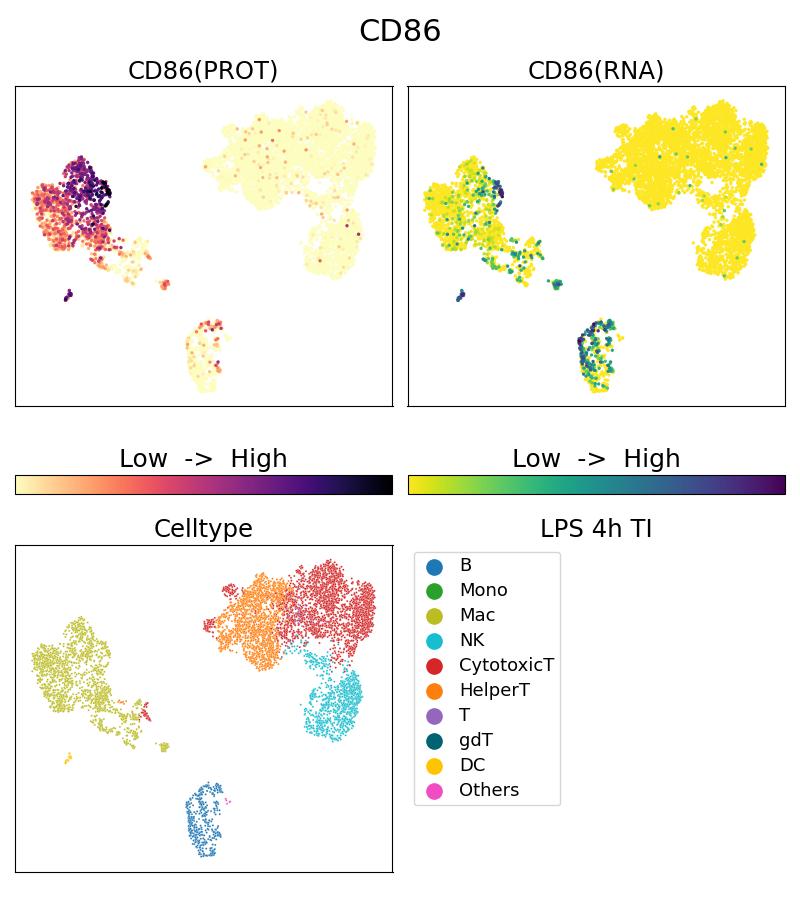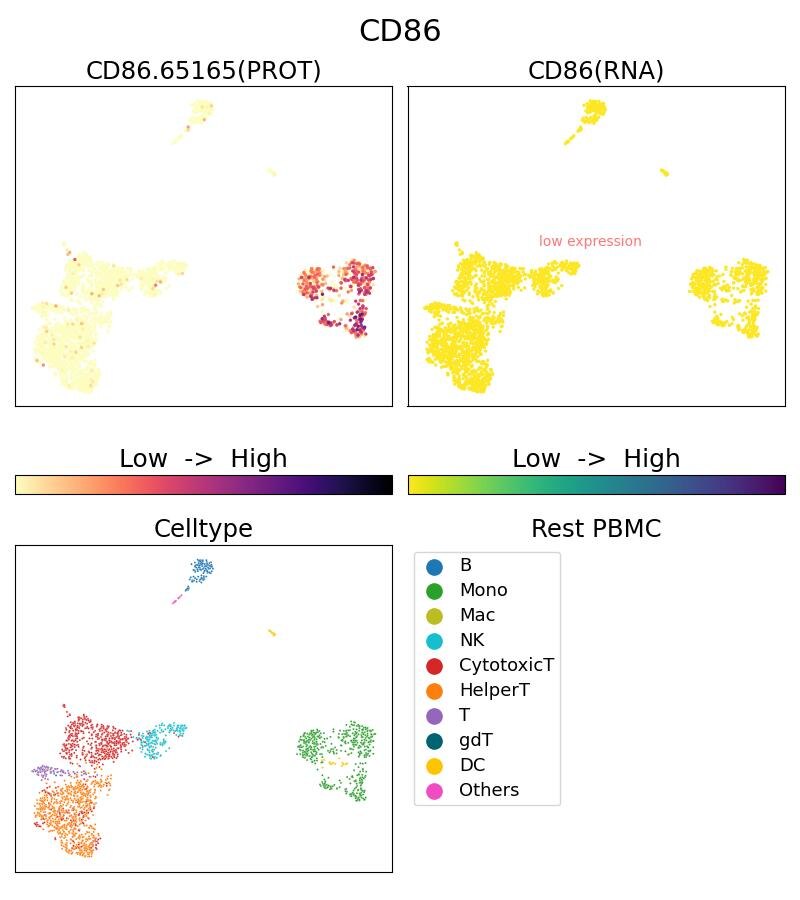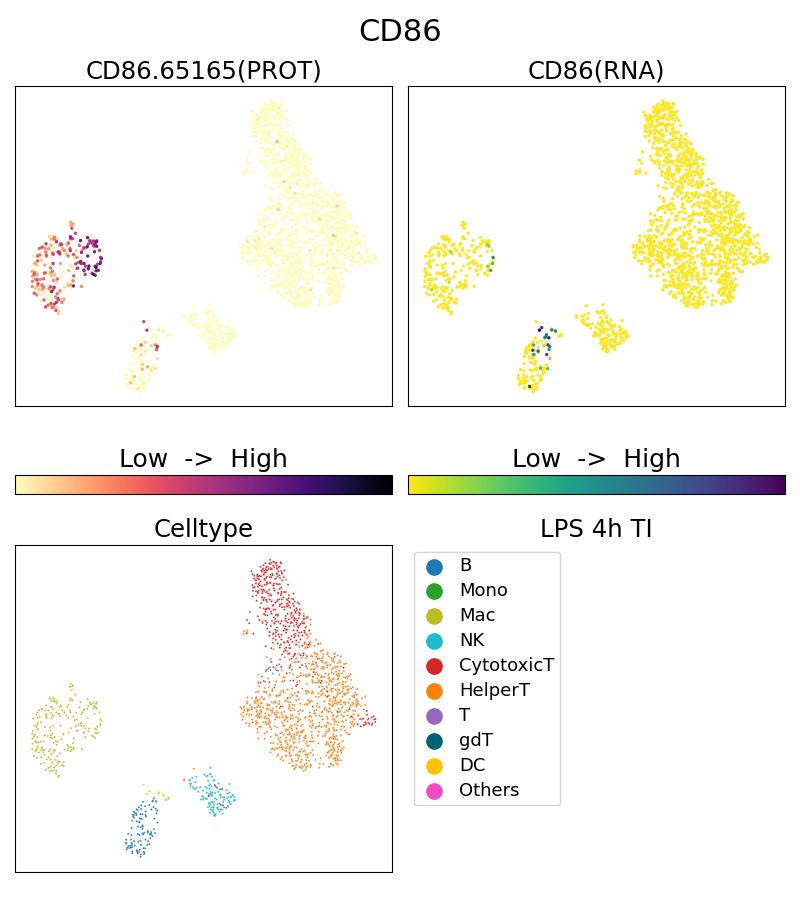CD86 Monoklonaler Antikörper
CD86 Monoklonal Antikörper für Single Cell (Intra), Single Cell
Wirt / Isotyp
Maus / IgG1, kappa
Getestete Reaktivität
human
Anwendung
Single Cell (Intra), Single Cell
Konjugation
5CFLX Fluorescent Dye
CloneNo.
BU63
Kat-Nr. : G65165-1-5C
Synonyme
Geprüfte Anwendungen
| Erfolgreiche Detektion in Single Cell (Intra) | 10x Genomics Gene Expression Flex with Feature Barcodes and Multiplexing product |
| Erfolgreiche Detektion in Single Cell | 10x Genomics Gene Expression Flex with Feature Barcodes and Multiplexing product |
Empfohlene Verdünnung
| Anwendung | Verdünnung |
|---|---|
| SINGLE CELL (INTRA) | SINGLE CELL (INTRA) : <0.5ug/test |
| SINGLE CELL | SINGLE CELL : <0.5ug/test |
| It is recommended that this reagent should be titrated in each testing system to obtain optimal results. | |
| Sample-dependent, check data in validation data gallery | |
Produktinformation
G65165-1-5C bindet in Single Cell (Intra), Single Cell CD86 und zeigt Reaktivität mit human
| Getestete Reaktivität | human |
| Wirt / Isotyp | Maus / IgG1, kappa |
| Klonalität | Monoklonal |
| Typ | Antikörper |
| Immunogen | B-lymphoblastoide Zelllinie ARH 77 |
| Vollständiger Name | CD86 molecule |
| Berechnetes Molekulargewicht | 329 aa, 38 kDa |
| GenBank-Zugangsnummer | BC040261 |
| Gene symbol | CD86 |
| Gene ID (NCBI) | 942 |
| Konjugation | 5CFLX Fluorescent Dye |
| Form | Liquid |
| Reinigungsmethode | |
| Lagerungspuffer | PBS with 1mM EDTA and 0.09% sodium azide |
| Lagerungsbedingungen | 2-8°C Stable for one year after shipment. 20ul Größen enthalten 0,1% BSA. |
Hintergrundinformationen
CD86 (also known as B7.2) is a costimulatory molecule belonging to the immunoglobulin superfamily. Primarily expressed on antigen-presenting cells (APCs), including B cells, dendritic cells, and macrophages, CD86 is the ligand for two proteins at the cell surface of T cells, CD28 antigen and cytotoxic T-lymphocyte-associated protein 4. Binding of CD86 with CD28 antigen is a costimulatory signal for activation of the T-cell. Binding of CD86 with cytotoxic T-lymphocyte-associated protein 4 negatively regulates T-cell activation and diminishes the immune response.




